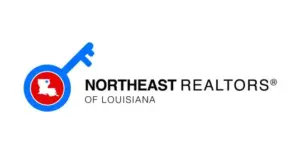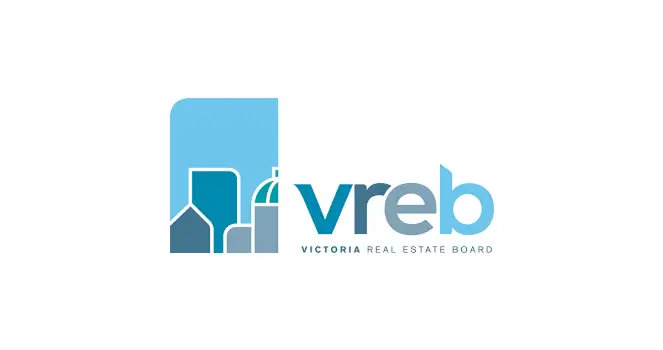To become a REALTOR® on Vancouver Island, you must understand how the local MLS system works. Unlike some provinces where one massive board handles everything, British Columbia organizes its real estate market through regional associations. On Vancouver Island, two main boards run the show: the Victoria Real Estate Board (VREB) and the Vancouver Island Real Estate Board (VIREB). They’re both under the umbrella of the Canadian Real Estate Association (CREA) and the British Columbia Real Estate Association (BCREA), but each handles its own territory and membership.
How Vancouver Island’s Real Estate Boards Work
The island splits MLS services between two regional powerhouses. VREB handles Greater Victoria and the Southern Gulf Islands, while VIREB covers everything from the Malahat north to the tip of the island. Both boards operate the same Matrix™ platform (locally called ViVa MLS), which means members can access listings across southern and central Vancouver Island without switching systems.
Here’s what makes this setup interesting: you can’t just pick which board you want to join. Your choice depends entirely on where you’ll be working. If you’re selling homes in Victoria, Saanich, or Oak Bay, you’ll join VREB. Planning to work in Nanaimo, Courtenay, or Campbell River? VIREB is your board.
Victoria Real Estate Board: The Southern Hub
VREB has existed since 1921, making it one of Canada’s oldest real estate boards. The association represents roughly 1,600 REALTORS® working across Greater Victoria and the Gulf Islands. Its jurisdiction runs from Sooke in the west to Sidney in the east, stretches north to Cherry Point Road in Cobble Hill, and includes all the Gulf Islands in between.
The board has deep roots in the community. Its over a century of operation means it’s seen every market cycle imaginable. The board is governed by elected REALTORS® and has helped shape professional standards for the entire province.
What It Costs to Join VREB
VREB publishes detailed fee schedules, so there aren’t any surprises when you apply. Here’s the breakdown for new members:
Initial Fees:
- VREB initiation fee: C$800 + C$40 GST
- BCREA new member fee: C$895 + C$44.75 GST
- CREA new member fee: C$200 + C$10 GST
Ongoing Monthly Costs:
- Membership service fee: C$130 + GST
- MLS® listing fee: C$50 + GST
- MLS® sales fee: C$50 + GST
Annual Dues:
- BCREA: C$204 + GST
- CREA: C$310 + GST
You’ll also need to budget for your B.C. Financial Services Authority (BCFSA) licensing fees. First-time applicants pay C$1,630, while renewals cost C$1,580. If you return to VREB after being away for two years or more, your initiation fee drops to C$300 plus tax.
Who Can Become a VREB Member
Membership isn’t automatic. You need a Trading Services licence from the BCFSA before applying. The board only accepts licensed real estate professionals (salespersons or brokers), and you must join CREA and BCREA first.
Character matters here. VREB requires a criminal record check and proof of good character. You’ll also need to meet language proficiency requirements to ensure you can communicate effectively with clients and other members.
Vancouver Island Real Estate Board: Covering the North
VIREB was established in 1951 and represents about 1,000 REALTORS® across central and northern Vancouver Island. The board’s territory starts at the top of the Malahat and extends to Port Hardy at the island’s north tip.
The association covers major communities, including:
- Nanaimo (the board’s primary hub)
- Campbell River
- Comox and Courtenay
- Duncan and Ladysmith
- Parksville and Qualicum Beach
- Port Alberni and Ucluelet
- Port Hardy
VIREB is a non-profit, member-based organization with a 10-member board of directors. In July 2020, it transitioned to the Matrix MLS platform and trained over 1,000 members on the new system.
VIREB Membership Costs
Getting exact fee information for VIREB is tougher than for VREB. The board’s website has had accessibility issues, so comprehensive fee schedules aren’t readily available. What we know comes from IDX providers and technology vendors working with the board.
Monthly technology fees run around:
- Board fee: C$3.50 per month
- Data Distribution Facility (DDF®) fee: C$9.00 per month
- IDX service pass-through: C$5.00 per month
These are technology costs, not full membership dues. Like VREB members, VIREB REALTORS® pay the same BCFSA licensing fees (C$1,630 first-time, C$1,580 renewal) plus CREA and BCREA dues. The initiation and service fees likely exist but weren’t publicly accessible during research.
Getting Your Real Estate License in BC
Both boards require the same licensing path through the BCFSA. You can’t skip this step, and it’s the same whether you’re joining VREB or VIREB.
The Education Requirements:
First, you’ll complete the Real Estate Trading Services Licensing Course through the University of British Columbia. This program covers everything from contract law to ethics, property valuation to agency relationships. After finishing the coursework, you’ll sit for the licensing exam.
Pass the exam, and you’ll have six months to complete the Applied Practice Course (Residential or Commercial Trading Services). This isn’t optional. The BCFSA requires it before they’ll issue your licence.
Background Checks:
The province takes reputation seriously. You’ll undergo a criminal record check, and the BCFSA reviews your background to ensure you meet their standards. Past financial issues or legal problems could affect your application.
The Step-by-Step Joining Process
Here’s how becoming a REALTOR® on Vancouver Island actually works:
- Complete Pre-Licensing Education – Enroll in UBC’s licensing course and pass the exam
- Finish Applied Practice – Complete your residential or commercial applied practice course within six months of passing the exam.
- Apply for BCFSA Licence – Submit your application to the B.C. Financial Services Authority with all required documentation
- Join National and Provincial Associations – Become a member of CREA and BCREA (this is mandatory for both boards)
- Apply to Your Local Board – Submit membership forms to VREB or VIREB based on your work location.
- Pay Your Fees – Cover initiation fees and monthly dues, and set up ongoing payments.
- Attend Orientation—Both boards provide orientation sessions to familiarize you with local rules, MLS systems, and best practices.
- Get MLS Access – Receive your credentials for the Matrix/ViVa platform and start accessing listings.
The entire process typically takes several months from start to finish. Budget both time and money accordingly.
The Matrix/ViVa MLS Platform
VREB and VIREB share the same MLS technology, simplifying things considerably. The Matrix™ system, branded locally as ViVa MLS, runs through CoreLogic and provides web-based access to listings across southern and central Vancouver Island.
Agents can input their own listings directly into Matrix and update statuses in real time (think: price changes, sold, cancelled). The platform connects to various transaction tools, including WEBForms®, DocuSign, and Authentisign, for digital signatures and forms.
You can access the system at matrix.vancouverislandmls.com, regardless of which board you belong to. This shared database means VREB agents can see VIREB listings and vice versa, creating better client market coverage.
The Matrix platform also integrates with CREA’s Data Distribution Facility (DDF®), syndicating listings to major real estate websites. This gets your properties in front of buyers browsing Realtor.ca and other platforms.
What’s Listed on the MLS
Both boards primarily handle residential real estate, though they also include some commercial properties and land listings.
VREB Listings Include:
- Single-family detached homes
- Townhouses and rowhouses
- Condominium apartments
- Manufactured homes
- Small-scale multi-family properties
VREB uses these categories for its MLS Home Price Index (HPI), which tracks benchmark prices across Greater Victoria. Heavy commercial and industrial properties typically go through specialized brokerages rather than the board’s MLS.
VIREB Property Types:
The northern board handles similar residential categories but also shows more commercial activity:
- Single-family detached homes
- Condo apartments
- Row/townhouses
- Commercial lease properties
- Commercial sale listings
Monthly statistics from both boards break down sales and active listings by these categories, giving members solid market data for pricing and analysis.
Key Differences Between VREB and VIREB
While both boards share technology and operate under the same provincial framework, practical differences are worth noting.
Geographic Coverage:
VREB focuses on the dense, urban Greater Victoria market plus the Gulf Islands. It’s a smaller geographic area with higher population density and faster-paced transactions. VIREB covers a massive territory stretching hundreds of kilometers north, encompassing everything from bedroom communities to remote coastal towns.
Market Characteristics:
Victoria’s market tends toward higher prices and more competitive bidding, particularly for single-family homes in desirable neighborhoods. The VIREB territory offers more diversity, from affordable Nanaimo condos to waterfront properties in Comox and recreation-focused Parksville.
Membership Size:
VREB has about 1,600 members serving a concentrated area. VIREB’s roughly 1,000 members are spread across a much larger territory, which means less agent density in many communities.
Fee Transparency:
VREB publishes comprehensive fee schedules that are easy to find and understand. VIREB’s fee information is harder to track, though the underlying costs (licensing, CREA/BCREA dues) remain the same.
Making Your Choice
You don’t really choose between these boards based on preference. Your work location determines your membership. If you plan to focus on Victoria and the surrounding areas, VREB is your only option. Working up-island? VIREB it is.
Some brokerages operate across both territories and hold memberships in both boards, but individual agents typically stick to one jurisdiction. The shared Matrix platform means you can still access listings from both areas, but your primary board membership determines where you can legally represent clients and earn commission.
New agents should consider where they want to build their business in the long term. Victoria offers an established, competitive market with strong institutional support and networking. The up-island communities provide opportunities to become a go-to agent in smaller markets, often with less initial competition.
What This Means for You
Understanding Vancouver Island’s MLS structure helps you plan your real estate career more effectively. VREB and VIREB maintain professional standards, provide solid technology platforms, and give members access to comprehensive market data.
The costs are substantial but predictable, especially with VREB’s transparent fee schedule. Factor in C$2,000-3,000 for initial licensing and membership fees, plus C$230-280 monthly for ongoing dues and MLS access. These numbers don’t include your brokerage fees or other business expenses.
The licensing requirements are the same for both boards: complete your education through UBC, pass the exam, finish your applied practice course, and get approved by the BCFSA. From there, joining your local board is straightforward.
Whether you end up with VREB or VIREB, you’ll be part of a professional association with decades of experience serving Vancouver Island’s real estate market. The shared Matrix platform means you’re never isolated from listings in neighboring territories, and both boards provide ongoing education and support for members.
The regional structure might initially seem complicated, but it creates accountability and local expertise. Your board knows your market intimately because that’s all they focus on. That local knowledge filters down to members through market reports, education sessions, and networking events tailored to your specific territory.
For anyone serious about becoming a REALTOR® on Vancouver Island, understanding these two associations is your first step toward building a successful real estate practice.
Table of Contents







